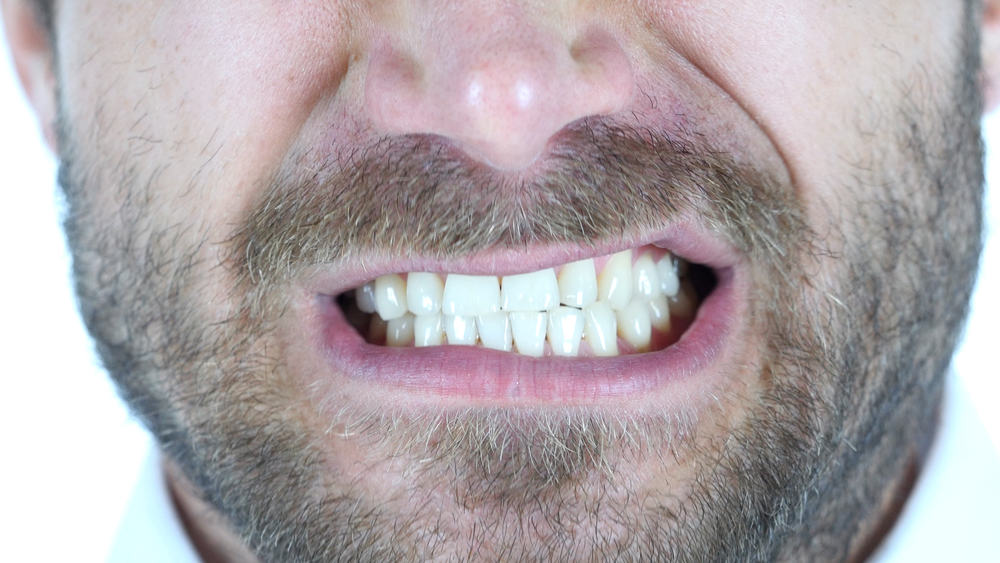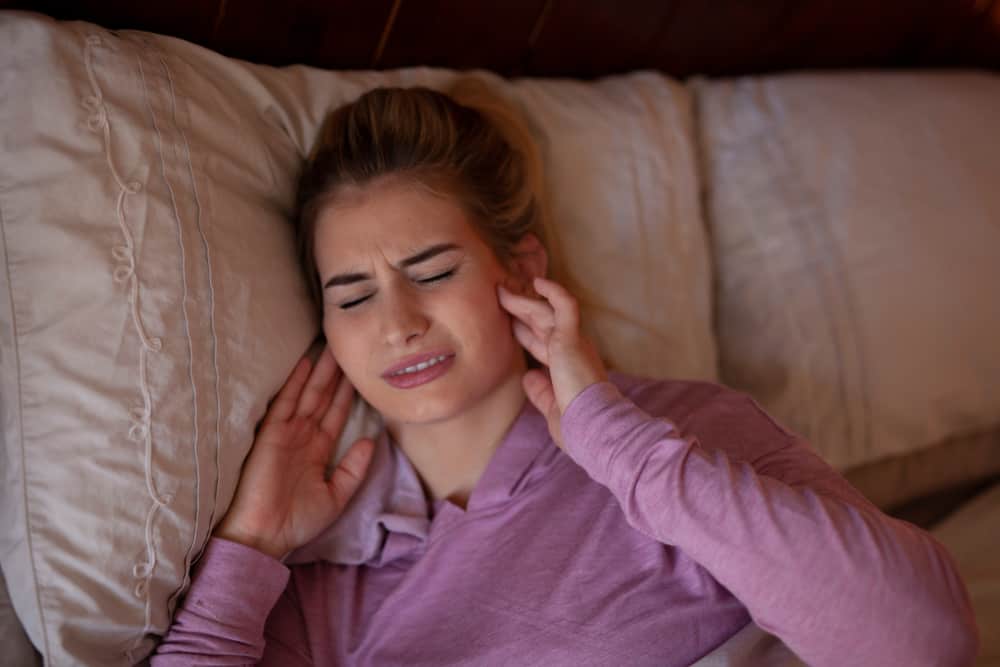Teeth Grinding &
Bruxism
A common condition where grinding in your sleep may cause long-term health effects
Tooth
Grinding
Teeth grinding, (aka bruxism), or jaw clenching often occurs due to stress or reality. Grinding your teeth doesn’t necessarily cause symptoms but over time it will wear your teeth down.
However, some people who suffer from teeth grinding do suffer from headaches and facial pain.
Moreover, many people who frequently grind their teeth or clench their jaws do not always know they’re actually doing it.
For many patients, teeth grinding, or jaw clenching happens when they are concentrating, stressed or when they’re sleeping.

What causes Teeth Grinding / Bruxism?
Unfortunately, the reason that people grind their teeth isn’t always clear, nor is it isolated to one factor. Generally, the three main causes of bruxism are anxiety, stress and sleep issues. However, certain medication, particularly SSRIs (Selective Serotonin Reuptake Inhibitors), like fluoxetine and paroxetine.
How do I know if I am
grinding my teeth in my sleep?
Some people do not experience any symptoms, which is often the reason why it can lead to the tooth being worn down. Some of the common symptoms of teeth grinding include:
- Headaches
- Facial Pain
- Earache
- Disrupted sleep
- Stiffness and pain in the jaw bone and/or joint
Typically, these symptoms will often reduce and eventually disappear, once you stop teeth grinding.

Everyday life can be tough on your teeth
At Night
While you sleep at night, you or your partner may realise you are grinding your top and bottom row of teeth together. This can wear the tooth surface down over time.
During the day
If you’re feeling nervous or stressed throughout the day, you may be grinding and clenching your jaw. Sometimes without even realising.
How serious is grinding your teeth?
- Damaged teeth may become sensitive
- Fillings may crack and lead to cavities
- Long-term grinding can change tooth shape
Teeth Grinding (Bruxism) FAQs
It is recommended to check in with your dentist if you believe you’re suffering from bruxism (teeth griding). Your dentist may then refer you to a specialist, depending on the cause / symptons you’re experiencing.
Some bruxism sufferers may benefit from visiting:
- Their GP
- A psychologist, to help with stress management
- A physiotherapist
The most common signs of teeth grinding include:
- Complaints from a partner (they hear clicking / chattering noises while you sleep)
- Pain in jaw
- Waking up with headaches
- Unexplained damage to teeth
- Facial appearance changes, due to teeth wearing out
Problems caused by teeth grinding may include:
- cracking of tooth enamel
- excessive wear and tear on teeth
- broken teeth or
- broken restorations (such as fillings)
- strain on the jaw joint (temporomandibular joint)
- pain in the jaw joint or limited movement
- sore jaw muscles
- loss of tooth (in rare cases)
- increased hot and cold sensitivity in teeth
It is always recommended to see your dentist if you notice that your teeth are becoming worn are more sensitive, even after practising good oral hygiene.
Also, if you have a persistent jaw, ear or facial pain, you may need to see your dentist before the problem worsens.

Steps in Treatment for Teeth Grinding
The dentist will perform the necessary checks on your teeth and jaw to identify any signs of teeth grinding.
The dentist may give you a mouth guard/mouth splint to wear during the night to prevent further damage to your teeth.
You may require further dental treatment if your teeth have become too worn. The dentist may recommend a cap or crown, to strengthen the tooth/teeth to prevent further issues like a tooth infection or an abscess from developing.
- nightguards
- orthodontics
- injection of Botox into the Masseter muscle
- restorative dental care
The dentist may recommend that you book in with your doctor, to look into Cognitive Behavioural Therapy (CBT). Also, seeing your doctor will allow you to better manage your stress to prevent further damage, especially if you’ve been doing this subconsciously.

